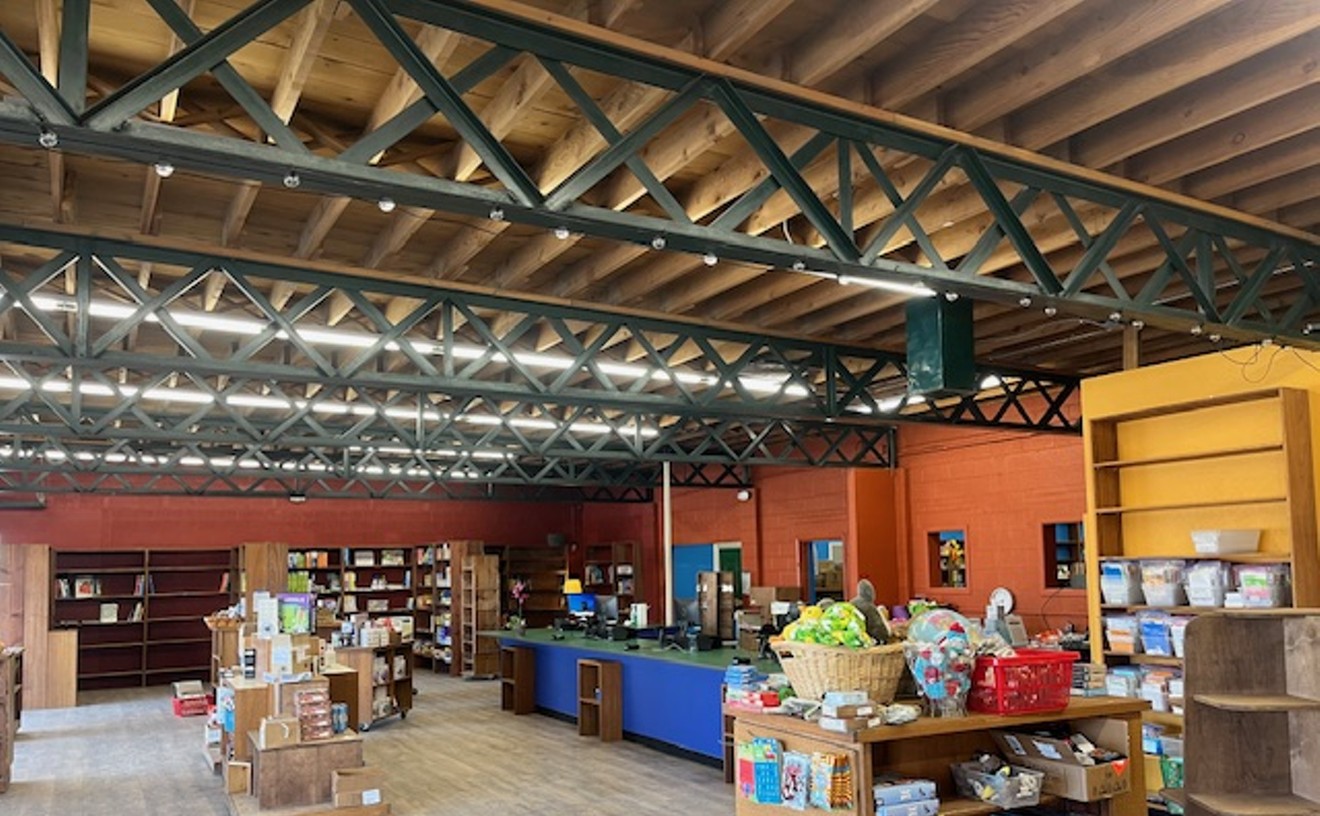"It's an awful job," he says. "With the Mexican guys in Coyotes (his second book), it was scary when you crossed the border. Going to prison is scary every single day."
Conover wanted to evaluate America's growing prison culture. He also wanted to explore the relationship between prisoner and guard. "The guard is mainstream society's last representative," he writes, "the inmate its most marginal man."
Conover's a liberal kind of guy, and the image of him strolling past locked-in men fingering his baton, ordering a strip search or participating in an extraction (in which heavily armed guards violently remove an inmate from his cell) is jarring. But much of what we know about prison life is distorted, he says. Though society howls for stricter penalties, popular culture turns the criminal -- once he's incarcerated -- into a victim.
"The literary establishment cares a lot about Mumia Abu-Jamal," Conover says, "but never looks too deeply into the cases of, say, the white working-class guys who go berserk at post offices."
Guards are "decent people who have to do indecent things every day for months or years, and it changes them. Yes, you do feel like a beast, and that this is harmful to them and harmful to you. The great privilege of being a writer is being able to admit the complexity of things -- that there are good guards and there are irredeemable inmates." The guards are, after all, doing society's dirty work, because "prisons are our preferred solutions. You can't feel you've got clean hands because you don't see those places."
It concerns Conover that the concept of rehabilitation has been entirely abandoned and that, with the advent of supermax prisons, in which inmates are held for years in permanent isolation, society is returning to long-discredited methods. The supermaxes are "incredibly expensive," he says. "You're taking the worst of the worst and cutting their last tie to civilization. A lot of these guys are going to get out, and they're going to hurt more people.
"A more humane prison system would be welcomed by guards, too, just as guards are always in favor of weight rooms and television privileges," Conover adds. "I think everyone would like to believe that some good comes out of the work they do. Most guards would welcome the chance to make some kind of positive difference." And although guards must be careful not to become too friendly with prisoners, a couple of the inmates Conover worked with got to him. One of them handed him an article about plans for future prisons and said, "Do I have it right, Conover? They're planning prisons for kids who are now three or four years old?"
The second was a Puerto Rican prisoner serving his third sentence for robbery. The word "assassin" was tattooed on his chest; on his back was a sentence from Anne Frank's diary: "When everybody starts hovering over me, I get cross, then sad, and finally end up turning my heart inside out, the bad part on the outside and the good part on the inside, and keep trying to find a way to become what I'd like to be and what I could be if...if only there were no other people in the world."











